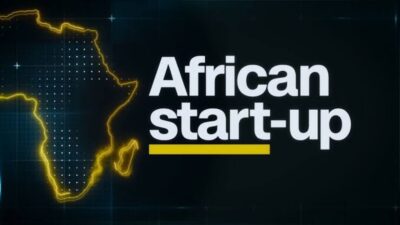Startup funding for the African continent decreased in the first half of 2024, dropping to $780 million from $1.8 billion during the same period in 2023. Despite this decline, Nigeria managed to maintain its funding levels, as reported by Africa: The Big Deal, a platform that monitors startup financing across the continent, during its Africa Start-up Funding Round-Up 2024 mid-year edition held online. As of Monday, total startup investments in Africa for 2024 surpassed $1 billion, bolstered by two significant deals announced since mid-July: d.light’s $176 million securitization facility and MNT-Halan’s $157.5 million funding round aimed at supporting their expansion.
NALA’s $40 million Series A round in July and other smaller investments contributed approximately $400 million, which Africa: The Big Deal noted will make July 2024 the most successful month for fundraising in Africa in over a year, exceeding the total raised during Q2 2024. The top four economies attracting the most funding on the continent are Nigeria, Egypt, Kenya, and South Africa.
In the first half of the year, funding for the other three nations saw a significant reduction, unlike Nigeria. “There has been a notable decrease in funding across the continent, particularly impacting Kenya, Egypt, and South Africa. Nigeria, however, has remained stable. While the other three had an interesting first half on a global scale, they could not maintain that momentum,” stated Max Cuvellier Giacomelli, one of the presenters during the review. In the first half of the year, startups in Africa raised $780 million in equity and debt, excluding exits, compared to $1.8 billion in the first half of 2023, which is also below the figures recorded in 2021.
However, the number of startups that secured $1 million or more during this period, which exceeded 100, is comparable to the previous years, with 2022 being an outlier. “Looking at the brighter side, there are still startups successfully raising funds on the continent, with around 100 securing $1 million,�� he noted. Regarding the combination of debt and equity funding, he pointed out, “Since 2019, there has been a marked increase in the proportion of debt being raised by startups.
There are several factors contributing to this trend. Startups are more inclined to announce and report their debt funding than their equity, but this doesn’t account for everything. There are more debt offerings available in the market.” Co-presenter Maxime Bayen revealed that, for the first time, a new sector has taken the lead in funding: Logistics and Transport, which accounted for 28 percent, surpassing fintech at 23 percent.
Fintech has historically led with more than 30 percent over the past few years. Following these sectors, energy and water received 17 percent of the funding, while agriculture and food received just under 10 percent. The increase in logistics funding was significantly influenced by the Moove deal in Nigeria, alongside M-Kopa and Spiro in the energy sector, indicating a trend that is likely to continue with upcoming deals.
In March, mobility startup Moove secured a $100 million investment from Uber, raising its valuation to $750 million post-deal.
According to the company, the Series B raise also had participation from its previous investor, Mubadala, as well as new investors, such as The Latest Ventures, Africinvest, Palm Drive Capital, Triatlum Advisors AG, and Future Africa. BofA Securities provided strategic financial guidance for the deal.
The latest fundraising brings Moove’s total raise so far to $460m comprising $250m in equity and $210 million in debt financing.
Bayen projected that the total funding on the continent would be between $1.5 and $2bn at the end of the year, which is below the 2023 level and nowhere near 2022 when it was $3.2bn as of the half year.
